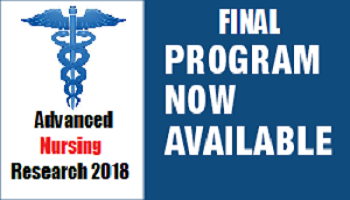
Tracy Christianson
Thompson Rivers University, Canada
Title: The effect of faculty lead gentle persuasive approaches training has on nursing students to manage responsive behaviors
Biography
Biography: Tracy Christianson
Abstract
Problem Statement: Nurses face a high level of risk of violence compared with other workers, with higher frequency towards those who are younger and less experienced. Risk of violence is similar for health care aides (HCA), and nursing students, with HCAs experiencing the highest rate of injury because much of their work and clinical practice is in residential care settings where many patients are at risk for challenging behaviors due to cognitive changes.
Purpose: The purpose of this project was to evaluate the effects of Gentle Persuasive Approaches© (GPA) training had on students' knowledge and ability to care for patients who have the potential for responsive behaviors. GPA is a training program recognized in Canada as best practice in the management of responsive behaviors of patient and provides the learner with the skills to interact and intervene to diffuse escalating care situations.
Methodology: A mixed-methods approach with a quasi-experimental, repeated measures design was used with nursing students (health care assistant [HCA] & bachelor of nursing [BSN]) who had limited exposure to the practice setting. The intervention took place over three phases with two HCA cohorts completing GPA through self-paced online modules (e-learning) with a two-hour face-to-face post e-learning review (Phases 1 & 2). Phase 3, the third HCA cohort and 1/2 of the BSN cohort received GPA training face-to-face (Phase 3) with GPA trainers, with the other half of the first year BSN cohort as the comparison group. Repeated measure questionnaires were administered pre-GPA, post-GPA, and post-clinical practice. At the close of each clinical practice, focus groups allowed students to reflect on how GPA prepared them for managing responsive behaviors.
Findings: Although the project is not yet complete at the time of this abstract submission, preliminary results are indicating positive results. Students recognize signs of changes in behaviors that may lead to responsive behaviors. Students describe their ability to manage and redirect patients to decrease such behaviors. Physical techniques learned and practiced in the GPA training helped students confidently manage physical aggression.
Conclusion: While no scientific conclusions can be made at present, preliminary data indicates GPA may have had a positive impact on confidence, skill, and knowledge manage responsive behaviors.

